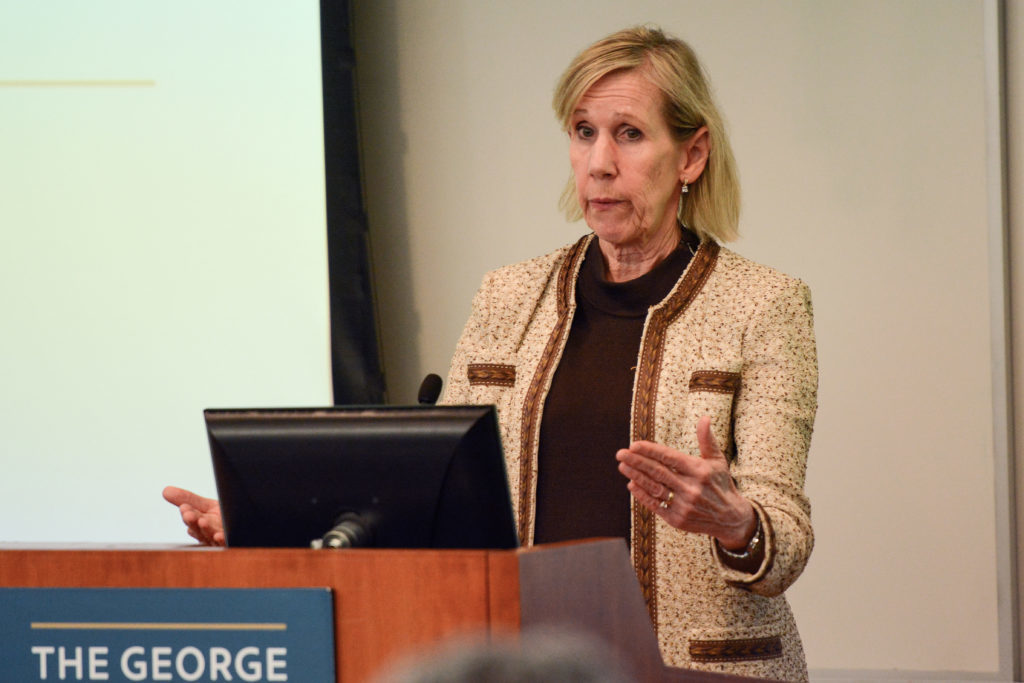Updated: Sept. 21, 2017 at 10:37 a.m.
New faculty will soon be getting a helping hand from their more experienced peers.
The University’s Teaching and Learning Center will host a series of lunchtime workshops this semester to give teaching tips and techniques –like how to structure a class period, how to keep students motivated and how to design a rubric – to new faculty. Geneva Henry, the dean of libraries and academic innovation, said the courses will allow young professors, who are usually well-versed in their subjects but not necessarily experienced in teaching, to learn from senior faculty.
After the workshops in the fall, senior professors will be assigned to observe newcomers in their classes and give them tips and pointers on managing the classroom, according to the University Center for Teaching and Learning website.
Henry said new faculty often need guidance in managing students, grading assignments and designing their courses because they typically start with little experience in teaching.
“Faculty when they’re coming out of grad school and they get a job at GW, a great research university, but no one has ever taught them how to teach,” she said. “We will teach them how to create objectives that reflect the most important parts of their class and the technologies that will be important for active learning.”
She said the center would provide the resources for faculty to learn how to use helpful technologies like clickers in the classroom and how to create goals and objectives so students will be aware of what they are supposed to be learning in class.
“It really is all about student academic success,” she said.
The teaching network will meet six times in Gelman Library during the fall and spring, and participants will schedule time for senior faculty to review their classes and give feedback.
Last year, the University Center for Teaching and Learning hosted a similar project called the Faculty Learning Community for Junior Faculty, which lasted half the year. The center also held an online course designed to help faculty teach courses online.
Windi Krok, an assistant professor of speech and hearing who has been teaching as a graduate instructor for five years, said she still feels that she has room to improve as a teacher.
It’s hard to fit all the meetings into her schedule, she said, but the investment will be worth it.
“I was really working on more of a lecture-based philosophy, and I’m really hoping this program will give me more ideas for active learning and participative learning,” Krok said.
Bryan Stuart, a professor of economics, said before coming to GW in August that he spent one year as a teaching assistant and ran several guest lectures at the University of Michigan while getting his doctorate. He said he hasn’t felt unprepared during his first month at GW, but it’s a much greater responsibility to put a syllabus and a course together by himself.
He said he wants students to be motivated in his classes and that peer evaluations and mentoring will be a helpful tool as he adjusts to teaching.
“It’s always useful to get another set of eyes to kind of assess what you’re doing and for people to share their opinions and their experiences,” he said.
Tomas Williams, a professor of statistics who will start teaching in the Columbian College of Arts and Sciences in January, said he applied to the program because he has only ever taught as a teaching assistant and he is looking to define his own lecture style.
He said the workshop will allow him the chance to get to know other early-career faculty, many of whom he hasn’t met. Williams said he’s interested to see how his peers approach their own courses.
“I need to know more about how to be the leader of the course and how to structure the course,” he said.
This post was updated to reflect the following correction:
The Hatchet left out a portion of Geneva Henry’s title. She is the dean of libraries and academic innovation. We regret this error.





